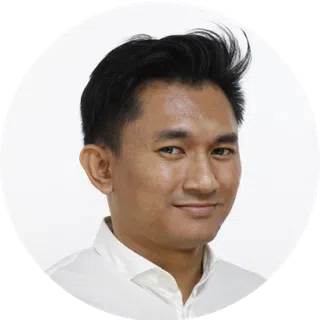Vastly diverse faces of Islam
The O.P.EN. festival challenges simplistic preconceptions of Islam through music, theatre and photography.

WHEN rockstar Perhat Khaliq took to the stage at Victoria Theatre last week, his primal growl and rugged good looks had fans in shivers. But the set of songs he performed with his band Qetiq was not quite what some had expected.
Khaliq may have found fame on the 2014 Chinese TV talent show The Voice Of China. The song many audiences came for and sang along to was his stripped-down version of the Mandarin ballad Why Are You Willing To Let Me Suffer, which he sang on the TV show.
But, apart from one other Mandarin tune Gift, the songs he sang at the O.P.E.N. festival were mostly in his native language of Uighur, belonging to one of China's Muslim minority communities.
His rocked-up versions of traditional Uighur songs were about love, work and struggle. The lyrics included plaintive cries to "Allah" (God). His band members included a Kazakh dombra player and Turkish tambor player, each lending distinct sounds of Islamic music.
Though it took awhile for some audiences to warm up, they eventually did, embracing Khaliq's seamless blend of tradition, culture, faith and rock 'n' roll. And when the applause came at the curtain call, it was long, warm and appreciative. The concert, in short, was exactly the kind of inter-faith, inter-cultural experience that the Singapore government always seems keen on.
As a musician straddling Western and Eastern cultures, traditional and modern sounds, Khaliq is the personification of a multicultural artist. As a Muslim Chinese rock star, he challenges the way Islam is viewed by many as a monolithic bloc - unyielding, uncompromising and, yes, violent.
Khaliq, however, wasn't the only one doing so at the O.P.E.N., a mini-festival which precedes August's much bigger Singapore International Festival of Arts. Headed by Ong Keng Sen and Noorlinah Mohamed, the O.P.E.N. shone the spotlight on two other artists challenging preconceptions of Islam.
The first of these two artists is Lebanese playwright-director Rabih Mroue, whose play Riding On A Cloud centres on the tragedy of his younger brother Yasser. In 1987, their grandfather, communist intellectual Hussein Mroue, was assassinated in his home in Beirut. Yasser, then 17, was also shot by a sniper while crossing the street.
Though Yasser did not die, the injury to his head made him aphasic, rendering him speech-impaired, partly amnesiac and unable to comprehend certain things such as symbols and representations.
Riding On A Cloud is created from what Rabih perceives to be how Yasser processes knowledge and information since his injury. It is stitched out of live monologues performed by Yasser himself, as well as old photos and videos. The backdrop of the play is the Lebanese Civil War which lasted for 15 years and devastated the lives of millions. Yet, Riding On A Cloud successfully addresses the human cost of war through its small and intimate canvas.
Some of the themes in Riding On A Cloud also find echoes in the works of the third artist who made her debut at the O.P.E.N. - award-winning Iranian photographer Newsha Tavakolian. An essential part of Tavakolian's art shows fellow Iranians going about their lives uneventfully.
A series of photos shot in a tenement building, for instance, depicts its denizens carrying out modest tasks, like getting ready to shave or celebrating a birthday alone. Yet each image is imbued with a quasi-mystical air that somehow takes it out of the present.
Another part of the exhibition shows Iranian women as attractive and empowered - challenging common notions of Middle Eastern women as oppressed and helpless. These images too have a surreal power that lifts them out of the here and now.
Like that of Khaliq and Mroue, Tavakolian's art pulls the viewer out of any preconceptions of Muslims - to see these subjects as ordinary individuals with ordinary struggles.
In one interview, Mroue says of Riding On A Cloud: "When one works on a specific event, one should keep moving and changing points, in order to get more interesting questions, thoughts and ideas - but no conclusions.
Because with conclusions, the case will be shut down, as if all the existing points around the subject have already been completed... It would become, in a way, religious."
Khaliq, Mroue and Tavakolian's art complicate any single reading of Islam, representing instead the vastly diverse faces of Muslims from various parts of the world.
The O.P.E.N. festival is now on till July 9. Purchase a ticket from Sistic at S$45, which gives you access to Tavakolian's exhibition at 72-13 Mohamed Sultan Road as well as 41 other events. As seats are limited, certain events require online pre-registeration on sifa.sg/theopen
BT is now on Telegram!
For daily updates on weekdays and specially selected content for the weekend. Subscribe to t.me/BizTimes
Lifestyle
Former Zouk morphs into mod-Asian Jiak Kim House, serving laksa pasta and mushroom bak kut teh
Massimo Bottura lends star power to pizza and pasta at Torno Subito
Victor Liong pairs Aussie and Asian food with mixed results at Artyzen’s Quenino restaurant
If Jay Chou likes Ju Xing’s zi char, you might too
Mod-Sin cooking izakaya style at Focal
What the fish? Diving for flavour at Fysh – Aussie chef Josh Niland’s Singapore debut
